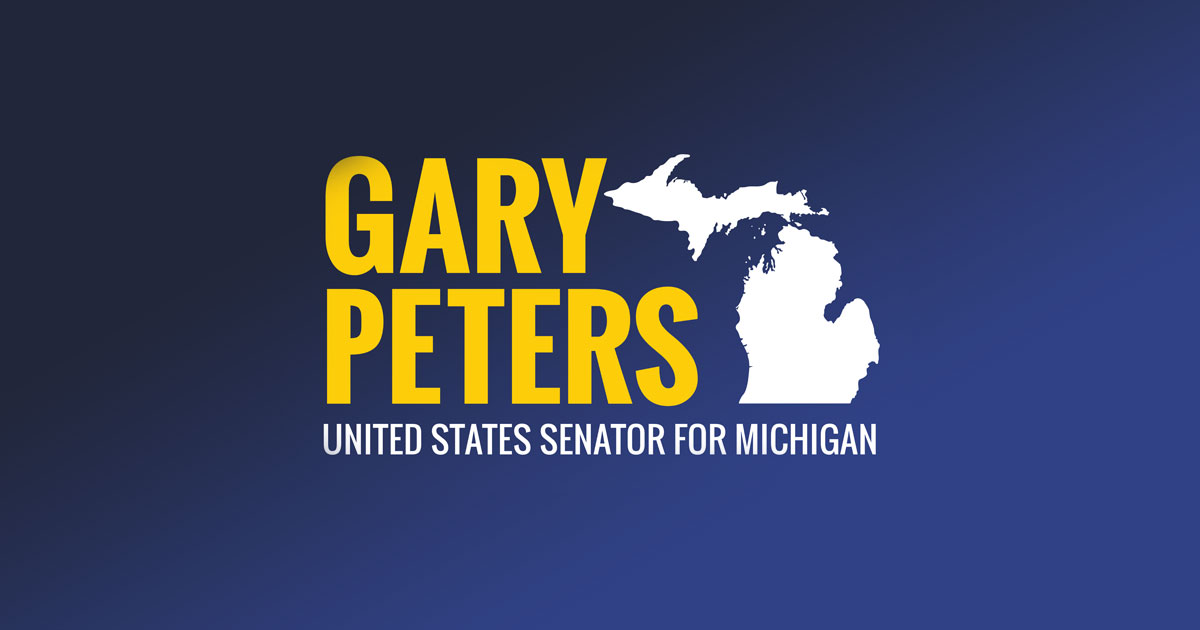Source: United States Senator for Michigan Gary Peters
06.23.21
WASHINGTON, DC – U.S. Senator Gary Peters (MI) announced reintroduction of bipartisan legislation to help recent graduates pay down student loan debt while addressing worker shortages in communities across the state and country. The Workforce Development Through Post-Graduation Scholarships Act of 2021, which Peters introduced with U.S. Senator Shelley Moore Capito (R-WV), would expand post-graduation scholarship grant programs by mandating that scholarship recipients are not required to pay income taxes on awarded funding, similar to traditional scholarships. This legislation would help spur long-term economic growth by alleviating the financial burden individuals face from student loan debt and incentivizing graduates to start their careers in areas experiencing shortages in working-aged college graduates. Companion legislation will be introduced in the U.S. House of Representatives by Representative Terri Sewell (D-AL) and Representative Darin LaHood (R-IL).
“By expanding access to post-graduation scholarships, we can help ease the staggering financial burden many recent graduates in Michigan face while promoting robust economic development in the communities that need their talent most,” said Senator Peters. “I am pleased to reintroduce this legislation that will help Michigan communities bolster their economies and provide much-needed assistance to those seeking to join our workforce.”
“Incentivizing West Virginians to stay in West Virginia, and encouraging people outside our state to move here is critical to reversing the population loss we’ve seen in recent years,” Senator Capito said. “Our bipartisan legislation would address the pattern the 2020 Census revealed by investing in recent college graduates with the ultimate goal of bringing in more people to live, work, and raise a family in the Mountain State.”
“The Council of Michigan Foundations is proud to work with Senator Peters and our community of philanthropy on innovative strategies to retain and attract talent in support of Michigan’s talent agenda and economic growth,” said Kyle Caldwell, President and CEO of the Council of Michigan Foundations. “As an increasing number of students are taking on significant loan debt, the Workforce Development Through Post-Graduation Scholarships Act offers financial relief for graduates looking to come to or return to Michigan. This added resource strengthens the partnership between philanthropy and businesses as we look to create pathways to economic stability for individuals and families that strengthen Michigan’s workforce.”
“We’re excited to partner with Senator Peters in supporting post-graduation scholarships like the Come Home program we’ve developed that is bringing the best and brightest workers back to St. Clair County,” said Randy Maiers, President & CEO, Community Foundation of St. Clair County. “These awards are a win-win for our area: they help recipients pay back their student loan debt while putting their training and education to good use.”
“The student debt crisis is damaging the financial futures of American students and families,” said Kathleen Enright, President & CEO of the Council on Foundations. “For rural communities where it can be more difficult to attract or retain people with the skills to fill needed jobs, post-graduation scholarships are a great incentive for recent graduates to come back home or move to places they may not have previously considered. The Workforce Development Through Post-Graduation Scholarships Act provides foundations with tools to help attract talent to meet the needs in their communities. This legislation is a result of years of collaboration between members of Congress and philanthropic leaders, and I urge Congress to send this bill to the President’s desk to sign into law immediately.”
Currently, unlike traditional scholarships, recipients of post-graduation scholarships are required to pay income tax on the grants they receive. The Workforce Development through Post-Graduation Scholarships Act would:
- Exclude Post-Graduation Scholarships from Gross Income: This bill would exclude post-graduation scholarships from gross income in the same manner as qualified scholarships. Currently, recipients of any post-graduation scholarship must pay income tax on these grants.
- Ensure Recipients are Living and Working in a Community in Need: This bill includes language that mandates that any grant distributed must be directly administered to someone living and working in a community that lacks working-age college graduates.
- Provide Guidelines for Proper Oversight: The bill gives the Department of Treasury rulemaking authority to create anti-fraud rules and reporting requirements to further ensure these post-graduation scholarships, as well as the recipient and the community foundation, are not subject to abuse. It would also direct the Government Accountability Office to conduct a study on the implementation of these grants that focuses on who is receiving them, how long they receive them for, and how much is paid out, among other areas so that the program may be improved to best meet the changing needs of communities.
In the U.S. Senate, Peters has been focused on strengthening and diversifying Michigan’s workforce and ensuring Michiganders can compete in a 21st century economy. In 2018, Peters’ legislation to expand career and technical education was signed into law. The legislation strengthens school counselor training and awareness of career and technical education so they can help inform students of post-high school education opportunities outside of the traditional four-year college degree.
###
